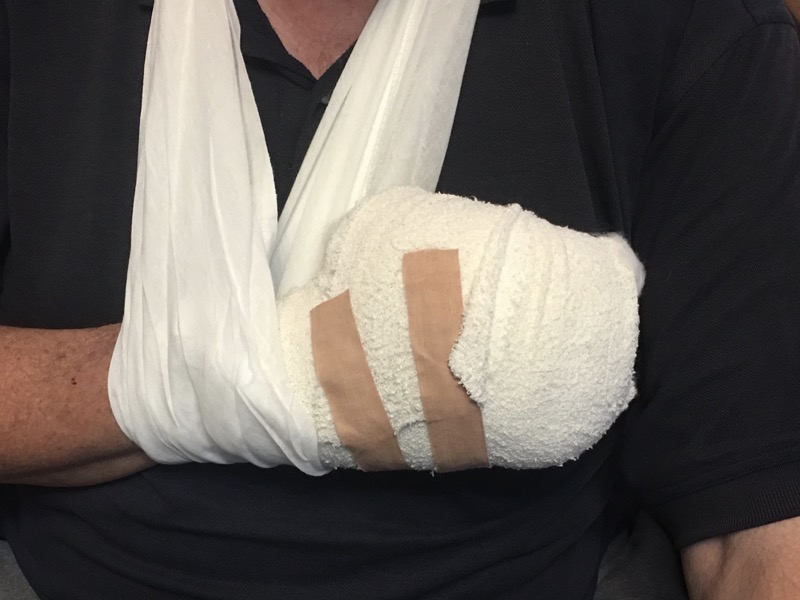
Don’t scroll down if you have a week stomach.

Random thoughts on anything that comes to mind


I have been suffering with Palmar fibromatosis for some years.
The middle fingers of my right hand have been slowly curling inwards for about 20 years. Finally it has reached a point where I need action. I am at the point where I can barely open my hand to a 90 Degree angle.
I am having surgery tomorrow. The first surgery I have had since having my tonsils out 53 years ago. I am, naturally apprehensive, but it is necessary.
Palmar fibromatosis (Dupuytren’s contracture) is a condition in which tissue in the palm of the hand covering the finger tendons thickens and scars. The affected tissue, called the palmar fascia, becomes tight and shortened, contracting the fingers inwards toward the palm.
I am told it is prevalent among people with Viking ancestry. Take from that what you will.
 I had a computer business. I was writing software for a number of businesses. I also did computer repairs. Many of those involved virus removal and cleaning up Windows to improve performance. My memory became so bad that I would tell someone I would call that afternoon and then forget to go. I would bring a computer back to the office for repair and forget where it came from. This is not the way to run a business. The business languished.
I had a computer business. I was writing software for a number of businesses. I also did computer repairs. Many of those involved virus removal and cleaning up Windows to improve performance. My memory became so bad that I would tell someone I would call that afternoon and then forget to go. I would bring a computer back to the office for repair and forget where it came from. This is not the way to run a business. The business languished. I was living in a fog where doing each task required intense concentration. Old information was at my fingertips. I could remember the IP addresses of servers I installed 10 years ago, but not today's date. The current time became a puzzle. I would drive past a café and wonder if my friends where there having lunch and then realize it was 7:30AM. My years of experience developing software, designing and managing security installations and flying all over Australia installing high priced electronic and mechanical systems was far in the past.
I was living in a fog where doing each task required intense concentration. Old information was at my fingertips. I could remember the IP addresses of servers I installed 10 years ago, but not today's date. The current time became a puzzle. I would drive past a café and wonder if my friends where there having lunch and then realize it was 7:30AM. My years of experience developing software, designing and managing security installations and flying all over Australia installing high priced electronic and mechanical systems was far in the past.Surgery went well, but recovery will take a while, but it is getting better. Don’t scroll down if you have a week stomach...
